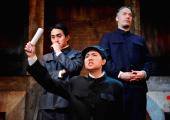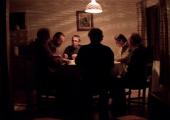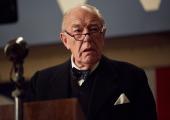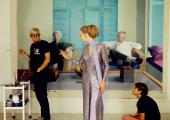Masters of the Pacific Coast: The Tribes of the American Northwest, BBC Four

Fascinating revelations about the rich culture of America's little-known peoples
The American northwest is gorgeous: endless lakes, limitless ocean, mountains, forests, overwhelming blue skies in deepest summer, mists and of course rain, in one of the wettest places on earth – 4 metres of rain annually. Here were hundreds of islands too, archipelagos in a land almost infinitely rich in resources, from the Alaskan Panhandle and British Columbia south to Washington State.









